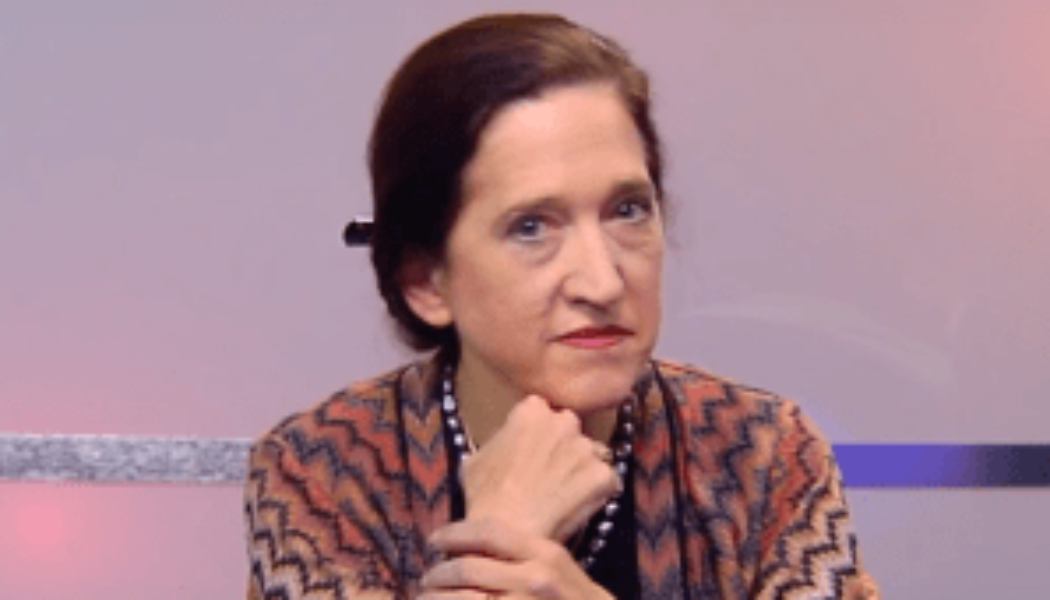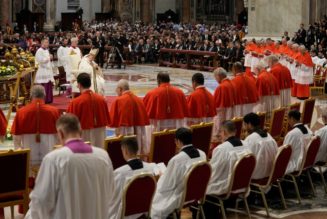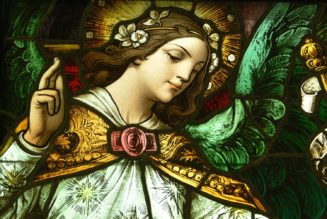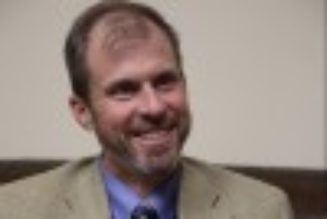A professional philosopher my friend Siobhan Nash-Marshall certainly was. But her own love of wisdom included the desire to change the world as well as interpret it. She constantly attempted to do so according to the wisdom that is foolishness to men.
 Perhaps it was because she was the child of diplomats and had learned their ways from growing up, but the late philosopher, writer, and humanitarian Siobhan Nash-Marshall always had an air of mystery, indeed romance, surrounding her. Communications with her always seemed conspiratorial, in large part because they were. Usually either brief, cryptic messages or phone calls in which she was announcing or planning something, she wanted one’s cooperation, assistance, or silent support and prayers. If she was in the same building, it was even better. My wife, Cathy, who taught in the philosophy department with her at the University of St. Thomas in Minnesota, recalls Siobhan’s tendency to appear suddenly in the doorway of her office, grab a forearm, and then lean in to relate the newest plan in her gravelly, cigarette-and-coffee alto. As she told my wife and me many times, don’t put anything in writing unless it’s necessary. Communications with her in the last few years were, appropriately, usually on the secure Signal app.
Perhaps it was because she was the child of diplomats and had learned their ways from growing up, but the late philosopher, writer, and humanitarian Siobhan Nash-Marshall always had an air of mystery, indeed romance, surrounding her. Communications with her always seemed conspiratorial, in large part because they were. Usually either brief, cryptic messages or phone calls in which she was announcing or planning something, she wanted one’s cooperation, assistance, or silent support and prayers. If she was in the same building, it was even better. My wife, Cathy, who taught in the philosophy department with her at the University of St. Thomas in Minnesota, recalls Siobhan’s tendency to appear suddenly in the doorway of her office, grab a forearm, and then lean in to relate the newest plan in her gravelly, cigarette-and-coffee alto. As she told my wife and me many times, don’t put anything in writing unless it’s necessary. Communications with her in the last few years were, appropriately, usually on the secure Signal app.
In keeping with that theme of mystery, I cannot tell you as much about her background as I would like to because there was a bit of secrecy about that, too. She was nominally a Philadelphia native, but the best description of where she grew up would be Manhattan and all Europe. Even a week after her death, there are no standard obituaries telling when she was born or even what exact day she died. She would no doubt be pleased. Looking at an up-to-date CV, I noticed that she did not include dates for any of her educational degrees, though I could glean from certain professional details that she was at New York University as an undergraduate studying Medieval and Renaissance Studies in the mid-1980s. This would make her, as she would no doubt have cut me off to say, “of a certain age.”
This estimate matches my recollections of meeting her in the late 1990s at Fordham University, when she was no doubt already in her thirties. Unlike many “older” graduate students, however, she wasn’t just one of those people taking a decade to write a doctoral dissertation for reasons good or ill. No, she had studied in Europe, earning a licentiate in philosophy from the ancient University of Padua, studying at the University of Munich with the Italian philosopher Giovanni Sala, and completing a first doctorate in philosophy, specializing in epistemology, at the Catholic University of Milan. She was now at Fordham studying metaphysics with the late, great Jesuit scholars Norris Clark and Joseph Koterski.
She was already somewhat legendary for her comprehensive exam performance at Fordham when I got there. She had included quotations in multiple original languages from memory. Given that she knew not only the standard academic languages of Greek, Latin, French, and German, but also Spanish, Italian, and Armenian, the performance could have been interpreted as a dare to any poor academic who would challenge her essays. All she had to do was pick out a quotation and ask, “How do you interpret this line?” (Those who knew her, however, can attest that she was humble about this linguistic prowess. She learned languages as a child, she would say, before “it took work.”) The reader might not be surprised that each part of the exam was given the highest possible distinction.
She was already finishing her dissertation, which would be published in 2000 as Participation and the Good: A Study in Boethian Metaphysics, when I arrived in 1998. She was often to be found standing at the back of Fordham philosophy department secretary Maria Terzulli’s office, conversing loudly in Italian as they blew cigarette smoke out the window; this gave them plausible deniability if they were ever asked whether they were violating the ban on indoor smoking. My wife remembers once walking into Collins Hall, where the philosophy and theology departments were housed, only to encounter Siobhan in jodhpurs and carrying a riding crop. She explained that she had been horseback riding in Central Park to work off nervous energy in the lead-up to her dissertation defense.
I remember becoming aware of her as a real person, not a mere academic legend, and meeting her only in 1999, when she published a popular book on Joan of Arc. She loved to tell the story of a radio interviewer who asked her how she came to be interested in the actress Joan Van Ark, famous for her Emmy-winning role on nighttime soap “Knots Landing.” That year, she was teaching at her alma mater, the very secular NYU, and organizing a spring conference on topics concerning Thomas Aquinas.
The more I heard about Siobhan’s conference, titled “Degrees of Truth: Current Controversies Surrounding Thomas Aquinas,” the more I was impressed. My respect was not merely because of her academic background and publishing (or the fact that she generously invited fellow philosophy graduate students to participate as respondents). It was due to her chutzpah. Given the nature of philosophers, particularly Thomists, “current controversies” could indicate merely the kind of technical topics at which ordinary people or even academics from other fields would simply mumble “uh-huh” and take another drink. The relationship of being and essence, always stated in Latin as esse and essentia. What St. Thomas meant in some obscure phrase in the Summa Theologica. How Platonic the Angelic Doctor really was. Etc. All real questions, of course, and perhaps likely to cause a fight in the bar afterward, depending on how much whiskey was consumed. But not “controversial” in the ordinary sense of the term. There was plenty of that, but Siobhan had her sights set on something a little closer to home.
I learned that Siobhan had invited J. Budziszewski, a serious Christian philosopher from the University of Texas, to give a keynote address about natural law. Given that natural law was and still is often considered a quaint Catholic idea (Cicero: call your office!), the fact that Budziszewski was not then Catholic (he has since entered full communion) provided a decent cover. But I had heard him speak as an undergraduate at Calvin College (now University) and knew he was not shy about taking on topics of same-sex relationships and even the morality of contraception. Let us say that, when the event happened, my wife reported that a sizeable number of people had not expected a speaker for an event at an academic institution such as NYU to transgress the sacred dogmas of the sexual revolution so openly. It was 1999, so one could still have such an event in a spirited but still polite way at a secular university.
As it turned out, Siobhan and Cathy both took positions in Minnesota at the University of St. Thomas in 2000. Initially hired under five-year contracts, the department liked them both well enough to ask that they be moved to tenure track midway through the first year. Cathy and I married in 2001, and we both got to know Siobhan well and watch her work.
A very popular teacher, some of it had to do with her persona. Still a Euro-cosmopolitan, she never really changed her usual outfit of silk blouse, A-line skirt, a mid-level heel, a crucifix necklace, and understated, elegant jewelry. Siobhan traveled often, and Cathy once asked her if it weren’t a hassle taking off all that jewelry at the airport. “The good stuff,” she explained, “never sets off metal detectors.” If she wore slacks, they were often leather, always Manhattan chic. She really didn’t give in to the demands of the Minnesota winter other than to wear a furry hat with ear flaps. And if she knew how to drive (another mystery), she nevertheless got around the Twin Cities as she would get around any civilized city: by taxi cab.
I don’t mean to suggest it was all about the cool vibes she couldn’t help giving off. I have no doubt that she earned her good student reviews. Looking at comments from ratemyprofessor.com from the last few years at Manhattanville College, I see what I’m sure I would have seen on her early student evaluations. “Crazy” and “fun” are words that appear over and over. One student captures the essence of her success in the classroom, however: “Seriously the best teacher ever. Makes you think! Like a[n] actual teacher should.”
She made everybody around her think. We spent much time with her, often going over to her apartment in downtown St. Paul with other friends for spirited debates, her Italian cooking, lots of wine, and music. She was always generous with families, if sometimes a bit wistful and sad. I think that was because she had been engaged while she was in graduate school; her fiancé had died in a motorcycle accident. If her apartment decoration was spare, the one large flourish was a grand piano that she would play as the evening wore on—often between cigarettes and arguments.
There was always a great deal to talk about. For one thing, she was always writing or editing something. Her first dissertation at Milan on the receptivity of the intellect in Bernard Lonergan’s thought would be published in 2002 in its original Italian. Another book aimed at the public, titled What it Takes to be Free: Religion and the Roots of Democracy, was published in 2003. In addition to publishing books and academic articles, she organized conferences on the Armenian Genocide and the current situation of the Armenian people. This topic was dear to her heart because of her godmother, the Armenian-Italian novelist and professor Antonia Arslan, whose articles and at least one book she translated. Siobhan was, in truth, a superstar.
That’s why it was so shocking when she was denied tenure. She figured out that she had been rejected by the committee that decided promotion and tenure. She appealed, the committee reversed itself, and then sent the recommendation back to the university president. The president denied her tenure and refused to give a reason. Not being one to back down from a fight, Siobhan sued the university. She lost her case, however, when the court decided that lower decisions by committees are only advisory and that the president had both the final say and the prerogative not to give a reason for denying tenure.
Denial of tenure for academics is often a death blow to a career. It was no surprise to me that she took this very hard. In the period after the initial denial of tenure, she called to commiserate. She asked me plaintively if I thought she had a good record. My response was that she had a better record than most people at the university who had been there much longer. I was as shocked as she was.
Why was she denied tenure? The only people whom I know to have information refused to say. I suspect it was because of her boldness in promoting a much more sharply delineated version of what a Catholic university was than what the administration wanted to hear. She did this both in committees and in public. Though the demons of wokeness and DEI had not fully colonized America in the 2000s, they were being nourished in the universities already, even ostensibly Catholic and Christian ones.
At one point, before the tenure decision, Archbishop Michael Miller, then Secretary of the Congregation for Catholic Education at the Vatican, had praised some of her comments on the nature of Catholic education to some administrators at the university. I have long suspected that his approval sealed her fate. She was too high a flyer to be saying things that didn’t match with the direction that so-called normal Catholic institutions were taking. While the women’s center on campus liked to talk about how unfairly women were treated, nobody associated with that institution uttered a peep about this decision. As is well known, one’s woman card will not work if the woman in question does not utter the liberal and leftist pieties required. Siobhan never did.
However depressed she was at the time of her defenestration, she did bounce back. She was soon hired as the Mary T. Clark Chair of Christian Philosophy at Manhattanville College in 2007, a position she held until her death. She continued to write and edit both academic and popular works. Her most important book was her 2018 volume, The Sins of the Fathers: Turkish Denialism and the Armenian Genocide, an account of the Armenian Genocide as symptomatic of the modern philosophical project that subjugates reality and truth to ideals.
She saw that phenomenon of truth’s subjugation to the needs of power enacted on a broad scale in the supposedly free world during the Covid-19 debacle. Many of her essays at The Imaginative Conservative dealt with this phenomenon. Her last completed book, a Covid-inspired novel titled George, was an imaginative depiction of the world of half-truths and lies—and what kind of conversion it would take to reject them.
Siobhan was not content to simply write, however. On Karl Marx’s tombstone are engraved the famous words from his “Theses on Feuerbach”: “Philosophers have only interpreted the world, in various ways; the point, however, is to change it.” Siobhan believed that interpreting the world correctly was the key to changing it for the better. But she certainly did believe in changing it. In her later years, she founded two different non-profit organizations.
The Christians in Need Foundation (CINF) was the first one. Founded in 2014, it was designed to aid Christians in the Near and Middle East. Initially, the hope was to bring students from Armenia and Syria to the United States to be trained and then go back to their homelands. When this didn’t work, the foundation decided to send people from the West to teach and work in these areas. Language, general education, and vocational programs were developed. Eventually, the charity focused on working in the Republic of Artsagh, a region within Azerbaijan that has long been home to an Armenian population and gained independence in 1991. The Azerbaijani offensive in the fall of 2023 put an end to independence and put the entire population in danger. Siobhan discussed the situation in September 2023 in an extended interview.
The other organization she founded was the Marshall Institute for Ethical Thought and Activity, begun in 2020. This was the project that Siobhan was most excited about in my conversations with her earlier in the year. She had started an Ethics Bowl in 2016 at Manhattanville College at which students could debate contemporary issues calmly, logically, and coherently—unlike the current iteration of “debate” at most high schools. By 2020, she decided to create the Marshall Institute to run these events and offer workshops in ethics, logic, and writing for high school students. Though Covid-19 pushed these events online, the Ethics Bowl returned to in-person events and has grown steadily. Now, over 250 students from the New York City area gather yearly at Manhattanville College to debate hot-button topics in a cool intellectual fashion.
She kept up all of this activity despite the fact that she was suffering from multiple cancers. In my conversations with her earlier this year, she talked about her desire to work for Christ and the Church in the most effective way she could. She was not content to sit on the sidelines; she wanted to crash the gates of hell, which she knew would not withstand the onslaught of the Church. She was a woman whose main gear was marked “onslaught.”
One of the few notices of her death thus far comes from the Italian newspaper Tempi. The writer Emmaneule Boffi describes her as a “‘jack-of-all-trades’ collaborator,” whose contribution was not limited to her essays in that publication, “but was always a volcano of initiatives, suggestions, ideas.” Boffi says that her ideas were “crazy,” such as the time she “phoned us to convince us to send, on board a hot air balloon, food to the inhabitants of Artsakh who were isolated due to the Turkish blockade of the Lachin corridor.” This was not to be a stealth operation. Siobhan’s idea was to paint a huge red cross on the side of the balloon. She shouted, “passionately,” over the phone, “I want to see if they dare to shoot the cross!”
That is the Siobhan Nash-Marshall I knew. That is the Siobhan Nash-Marshall whom her friends loved, admired, and occasionally found frustrating and even exasperating. If there is anything more mysterious than the details of her life, it was the certainly the mysterious love of Christ that pulsed through her and made her willing to go where others dared not go, fight when others wanted simply to achieve a truce, and try when all hope seemed lost.
A professional philosopher she was. But her own love of wisdom included the desire to change the world as well as interpret it. She constantly attempted to do so according to the wisdom that is foolishness to men.
She had a crazy love.
The Imaginative Conservative applies the principle of appreciation to the discussion of culture and politics—we approach dialogue with magnanimity rather than with mere civility. Will you help us remain a refreshing oasis in the increasingly contentious arena of modern discourse? Please consider donating now.
The featured image is courtesy of YouTube.










